The term “OCD narcissist” is not a recognized diagnosis or official term in clinical psychology; instead, it is colloquially used to describe an individual who may exhibit traits of both Obsessive-Compulsive Disorder (OCD) and Narcissistic Personality Disorder (NPD). Obsessive-Compulsive Disorder is an anxiety disorder characterized by unwanted, recurrent thoughts and repetitive behaviors. At the same time, Narcissistic Personality Disorder involves a pattern of self-centeredness, a need for admiration, and a lack of empathy for others. When these traits coincide, they can create complex challenges for individuals and those around them.
It’s important to distinguish between the two conditions, as OCD is an anxiety disorder, while narcissism is a personality disorder. The nuanced differences between their manifestations can affect how people interact with their environment, maintain relationships, and cope with day-to-day stressors. Recognizing the signs of each disorder is critical to understanding their combined impact on an individual’s life.
Diagnosis and treatment involve a careful evaluation by a mental health professional, with strategies differing significantly based on whether symptoms are attributed more to OCD, NPD, or a combination of traits from both disorders. Treatment usually includes psychotherapy and in the case of OCD, may also involve medication. Coping strategies and resilience-building are integral to managing symptoms and improving quality of life.
Key Takeaways
- “OCD narcissist” describes traits stemming from Obsessive-Compulsive Disorder and Narcissistic Personality Disorder.
- Differentiating between OCD and narcissism is crucial for understanding their combined effects on behavior and relationships.
- Professional diagnosis and tailored treatment are essential for managing symptoms effectively.
Understanding OCD and Narcissism
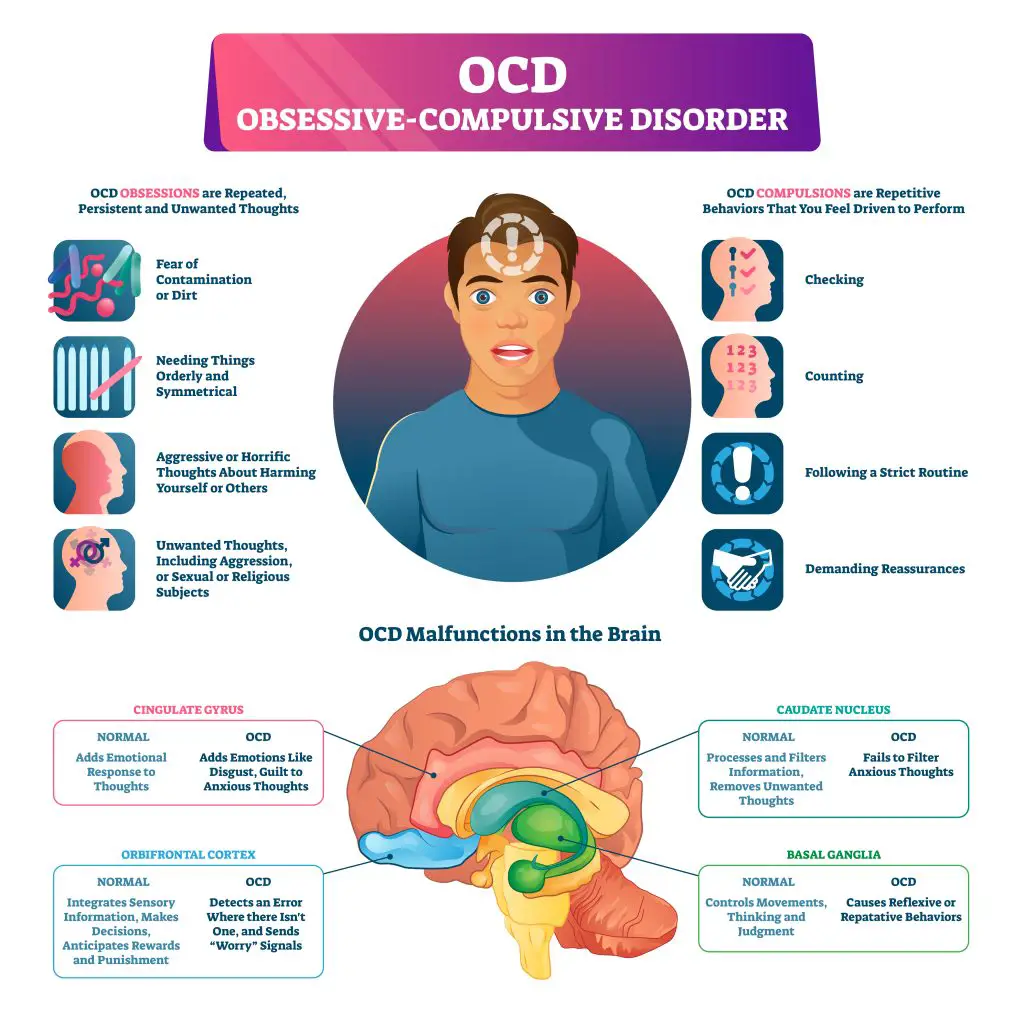 Exploring the complexities of OCD and narcissism reveals nuances in symptoms, characteristics, and potential interactions between these disorders.
Exploring the complexities of OCD and narcissism reveals nuances in symptoms, characteristics, and potential interactions between these disorders.
Defining OCD and Narcissistic Personality Disorder
Obsessive-Compulsive Disorder (OCD) is a mental health condition characterized by unwanted, recurring thoughts (obsessions) and repetitive behaviors (rituals). These rituals—such as excessive cleaning or checking—alleviate the distress caused by the obsessions.
Narcissistic Personality Disorder (NPD), on the other hand, is marked by a persistent pattern of exaggerated self-importance, a deep need for excessive attention and admiration, troubled relationships, and a lack of empathy for others.
Symptoms and Characteristics
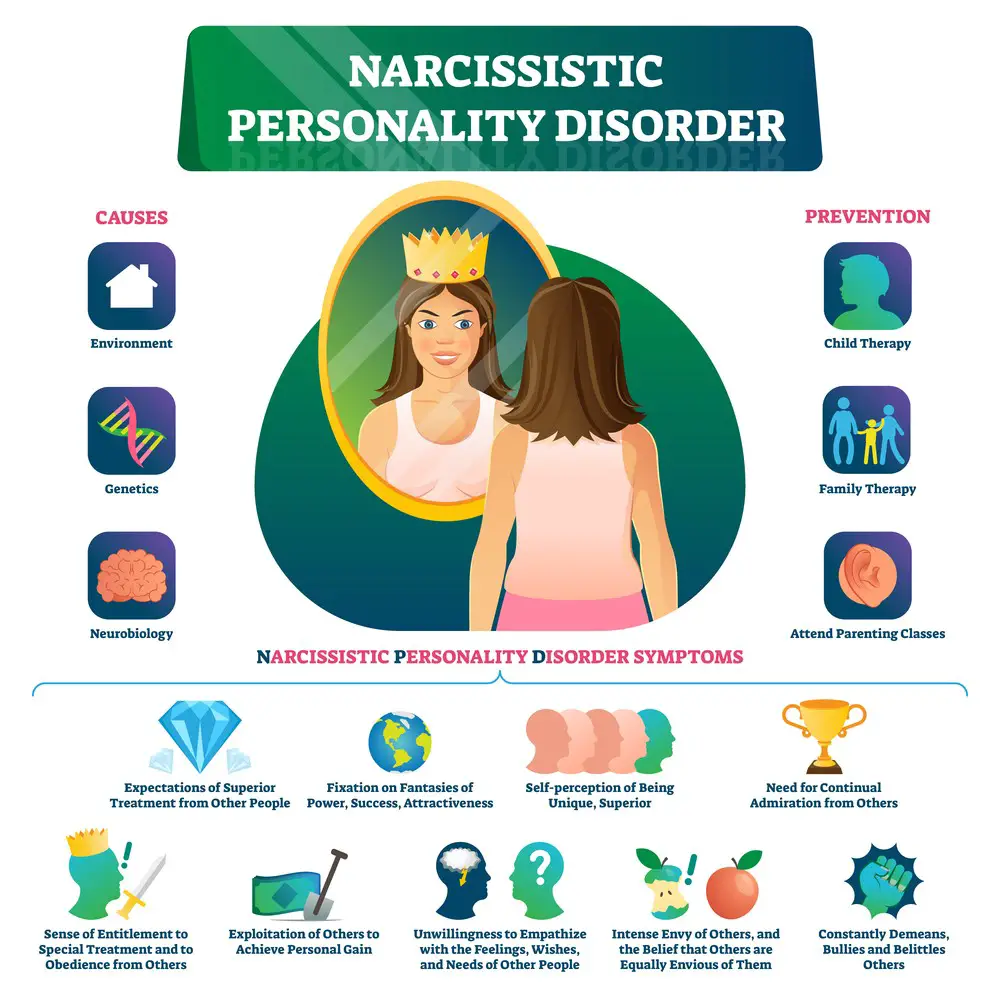 OCD might present a variety of symptoms:
OCD might present a variety of symptoms:
- Persistent and intrusive thoughts that cause distress or anxiety.
- Engagement in rituals or compulsions in an attempt to control these obsessions.
A narcissist typically exhibits:
- A grandiose sense of self-importance.
- A preoccupation with fantasies of unlimited success, power, and brilliance.
- A belief that they are special and unique and can only be understood by or associated with other special people.
- A need for excessive admiration.
The Link Between OCD and Narcissism
At first glance, OCD and narcissism may seem unrelated. But they can intersect in ways such as:
- A person with OCD may exhibit perfectionism, which can appear similar to the grandiosity of narcissism.
- The need for control in OCD might mirror the need for power often seen in narcissistic personality traits.
However, it’s essential to understand that while both disorders can feature a focus on control, their root causes and motivations differ significantly.
Key Takeaway: Recognizing the differences and similarities in behaviors, motivations, and symptoms contributes to a richer understanding of both OCD and narcissism.
Psychological and Behavioral Aspects
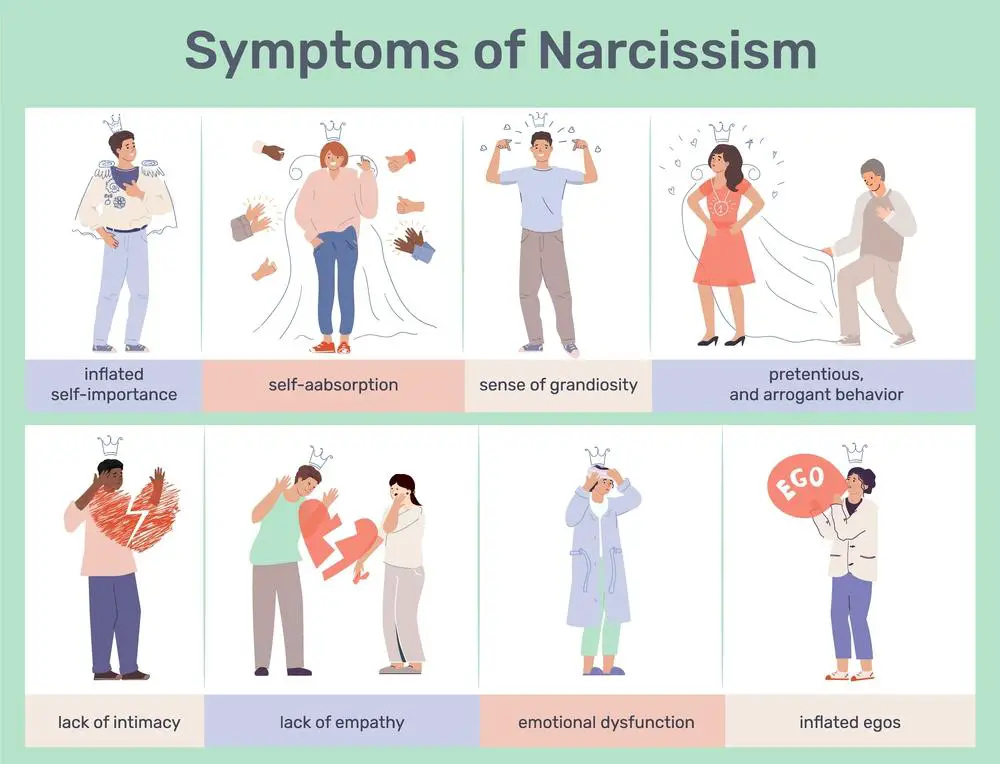 Obsessive-compulsive disorder (OCD) and narcissistic personality features can intertwine, impacting individuals’ thoughts and actions. They may struggle with intrusive thoughts that cause anxiety, compulsive behaviors to assert control, and a profound need for admiration and attention.
Obsessive-compulsive disorder (OCD) and narcissistic personality features can intertwine, impacting individuals’ thoughts and actions. They may struggle with intrusive thoughts that cause anxiety, compulsive behaviors to assert control, and a profound need for admiration and attention.
Intrusive Thoughts and Anxiety
Individuals dealing with OCD may experience intrusive thoughts and repetitive and unwanted ideas that provoke anxiety. These thoughts are often distressing, highlighting potential dangers or fears that are usually exaggerated.
- Key Takeaway: Intrusive thoughts are unwarranted and persistent, deeply entwined with anxiety, disrupting a person’s sense of peace and focus.
Compulsions and Control Issues
To manage the distress from intrusive thoughts, those with OCD often develop compulsions—ritualistic behaviors performed to gain a sense of control and reduce anxiety. Examples include:
- Excessive cleaning
- Repeatedly checking locks
- Arranging items symmetrically
These compulsions, while intended to help, often become time-consuming and may interfere with daily activities.
Key Takeaway: Compulsions are a response to anxiety, serving as a flawed strategy to establish control over intrusive thoughts and resulting stress.
Narcissism and the Need for Admiration
 Individuals with narcissistic traits exhibit behaviors driven by a craving for admiration and attention. They may:
Individuals with narcissistic traits exhibit behaviors driven by a craving for admiration and attention. They may:
- Seek excessive praise
- React negatively to criticism
- Exhibit grandiose fantasies
Their sense of self-importance and entitlement often comes at the expense of others’ needs and feelings, leading to various interpersonal issues.
Key Takeaway: The need for constant admiration is central to narcissistic behavior, shaping interactions and self-perception.
Impact on Relationships and Work
 When an individual with OCD also displays narcissistic traits, it can create unique challenges in both their personal and professional lives. These individuals may struggle with maintaining healthy relationships due to their need for control and lack of empathy. At the same time, work environments might suffer from their rigid standards and possible lack of teamwork.
When an individual with OCD also displays narcissistic traits, it can create unique challenges in both their personal and professional lives. These individuals may struggle with maintaining healthy relationships due to their need for control and lack of empathy. At the same time, work environments might suffer from their rigid standards and possible lack of teamwork.
Interpersonal Dynamics
In relationships, the combination of OCD and narcissistic qualities can lead to a tense atmosphere. The individual’s intense focus on order and perfectionism can cause friction with partners, friends, and family, who may feel overburdened or criticized.
- Empathy: They may lack empathy, struggling to understand or value others’ feelings, which can erode trust and closeness.
- Control: A need for control can manifest in relationships as rigidity or inflexibility, impacting mutual decision-making and spontaneity.
The stress generated by these factors often resonates through social interactions, making it challenging for individuals to maintain longstanding, deep connections.
Key Takeaway: Nurturing enduring relationships may require targeted strategies, such as counseling or therapy, to address the complexities introduced by these traits.
Professional Challenges
 In the workplace, those exhibiting narcissistic tendencies alongside OCD may encounter several hurdles.
In the workplace, those exhibiting narcissistic tendencies alongside OCD may encounter several hurdles.
- Standards of Perfectionism: These individuals often have high standards, which can result in exceptional work and create unrealistic expectations for themselves and their coworkers.
- They may struggle with collaboration, as their need for recognition can overshadow team goals.
- Stress Management: Workplace pressures can exacerbate stress levels, impacting their behavior and possibly leading to conflicts with colleagues.
Employers and coworkers might find it useful to establish clear communication and set boundaries to manage the potential challenges of these traits.
Key Takeaway: Professional success often hinges on balancing high personal standards and effective team dynamics.
Diagnosis and Treatment Strategies
Proper diagnosis and tailored treatment plans are essential in managing Obsessive-Compulsive Disorder (OCD) in individuals with narcissistic traits. This section focuses on the criteria for diagnosis, the variation in treatment options, and the effectiveness of specific therapeutic approaches.
Criteria for Diagnosis
Diagnosing OCD in someone with narcissistic features involves a careful evaluation process. Medical professionals look for:
- Persistent Symptoms: An extended period with symptoms like compulsions or obsessions.
- Distress or Impairment: Symptoms causing significant distress or functional impairment in social, occupational, or other critical areas.
- Exclusion: Ensuring symptoms are not attributed to substances or another medical condition.
Key takeaway: Diagnosis is a multi-step process that requires distinguishing symptoms unique to OCD that impact daily functioning.
Treatment Options and Approaches
For an individual diagnosed with OCD with narcissistic traits, treatment options vary and can include:
- Talk Therapy: Dialogue with a therapist to recognize and alter destructive thought patterns.
- Medications: SSRIs or other medications to manage symptoms.
- Combination: A mix of medication and therapy often proves most beneficial.
Efficacy of ERP and Cognitive Behavioral Therapy
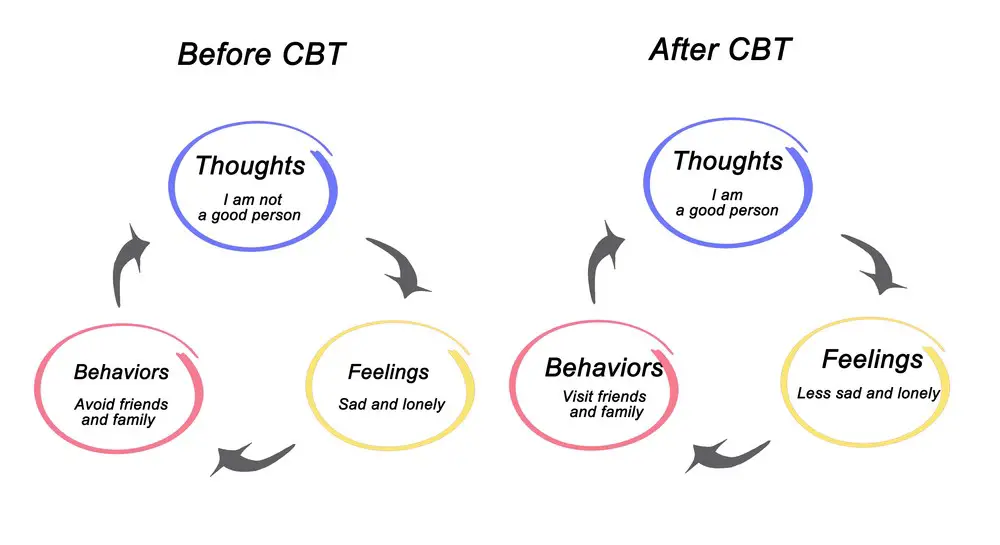 Empirical evidence highlights the effectiveness of Exposure Response Prevention (ERP) and Cognitive Behavioral Therapy (CBT) in treating OCD:
Empirical evidence highlights the effectiveness of Exposure Response Prevention (ERP) and Cognitive Behavioral Therapy (CBT) in treating OCD:
- ERP: Encourages patients to face their fears and refrain from compulsive responses.
- CBT: Works on the understanding and restructuring of maladaptive thought patterns.
Patients usually experience a reduction in symptoms and an improvement in quality of life. Evidence supports their respective ability to bring positive changes.
Key takeaway: ERP and CBT are frontline treatments for OCD, often leading to pronounced symptom management and enhanced well-being.
Emotional Experiences and Regulation
Emotional experiences and regulation are critical aspects to examine. Let’s explore how individuals with traits of OCD and narcissism manage their emotional landscape and the strategies they might utilize.
Understanding and Managing Emotions
Individuals displaying obsessive-compulsive and narcissistic traits often struggle with emotional regulation. They may experience emotions intensely but have difficulty expressing them constructively. Empathy can be compromised, leading to challenges in relationships and self-perception.
- Empathy: May be lower, affecting interpersonal connections.
- Self-Worth: Fragile and heavily influenced by external validation.
- Criticism: Often received poorly, potentially triggering distress or defensive responses.
To manage these emotions, they might:
- Identify Triggers: Recognizing what prompts emotional spikes helps in developing coping mechanisms.
- Seek Therapy: Professional guidance can teach healthy emotional expression and regulation.
Key Takeaway: Understanding emotions allows for better management and improved interpersonal relationships.
The Role of Stress and Distress
 Stress and distress are frequent visitors in the emotional lives of those juggling OCD and narcissistic traits. It can escalate to depression or overwhelming shame, often rooted in uncertainty or perceived failures.
Stress and distress are frequent visitors in the emotional lives of those juggling OCD and narcissistic traits. It can escalate to depression or overwhelming shame, often rooted in uncertainty or perceived failures.
- Stress: It might come from the need to maintain a certain image or control over their environment.
- Distress: Can lead to depression if the individual feels trapped by their compulsions or deflated by unmet grandiose expectations.
- Shame: Often exacerbated by a discrepancy between the ideal self and reality.
Strategies to mitigate these feelings include:
- Routine Development: Helps in creating a sense of control and predictability.
- Stress-Relief Techniques: Such as mindfulness or exercise to reduce the physiological impact of stress.
Key Takeaway: Recognizing and addressing the sources of stress and distress can prevent escalation into more severe emotional states.
The Psychological Impact of Narcissism and OCD
Understanding the intertwining of narcissism and OCD sheds light on the complex interplay between one’s self-image and behavioral patterns that can influence mental health significantly.
Self-Image and Self-Centered Behaviors
Individuals with narcissistic traits often have an inflated sense of self-importance and preoccupation with fantasies of success, power, and attractiveness. They may also show a lack of empathy and an excessive need for admiration.
- Key Factors:
- Elevated self-view: This results in persistent feelings of grandiosity.
- Lack of empathy: A diminished capacity to recognize or identify with the feelings and needs of others.
- Admiration-seeking: A continual search for external validation.
These elements contribute to a self-centered way of living, where the person’s own needs and desires are seen as paramount. The self-image maintained by individuals with these traits often leads to impaired relationships and potential conflict due to their inability to consider others equally.
Key Takeaway: A narcissist’s sense of superiority can mean they struggle to maintain healthy, reciprocal relationships.
Perfectionism and the Search for Certainty
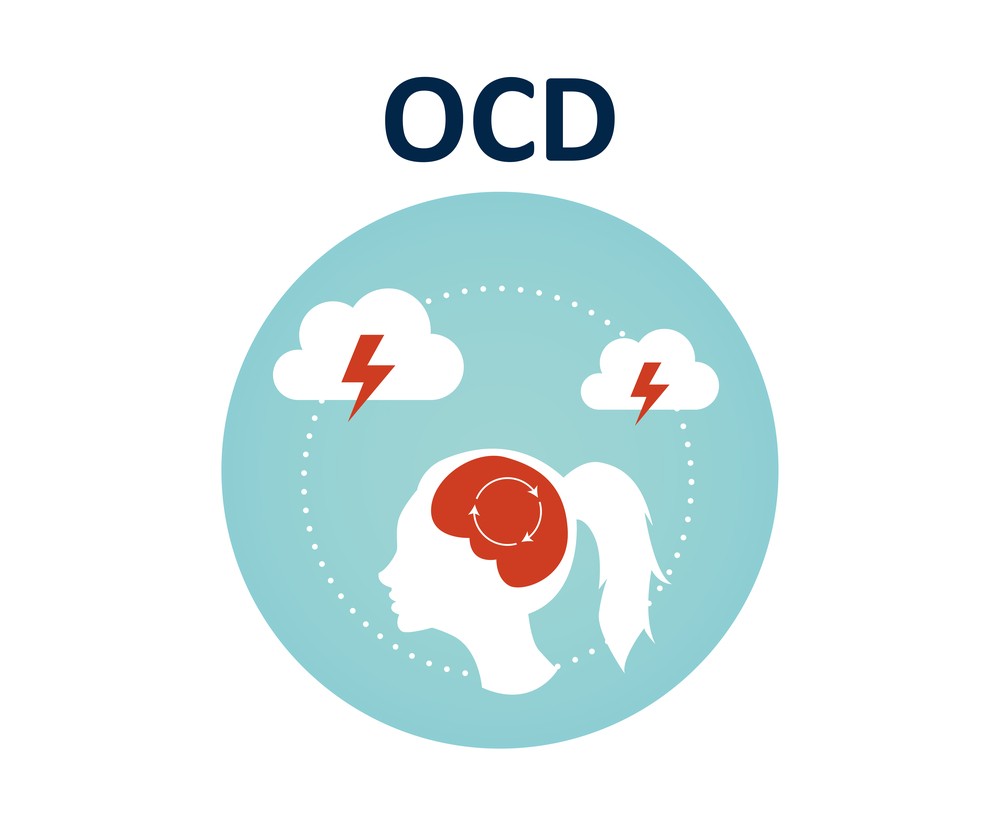
Perfectionism is a common characteristic in individuals grappling with OCD, where there is a strong need to perform tasks in a specific manner to alleviate anxiety. This desire for certainty and perfection can lead to repeated behaviors and mental acts, known as compulsions, intended to prevent or mitigate distress or prevent some dreaded event or situation.
- Manifestations:
- Rigid standards: Setting unrealistically high standards for oneself and others.
- Compulsions: Engaging in ritualistic or repetitive behaviors to reduce anxiety.
As persons with OCD seek certainty in their surroundings, perfectionism becomes a strategy for control. This pervasive quest for perfection often leads to dissatisfaction and elevated stress levels, particularly when outcomes deviate from their expectations.
Key Takeaway: The obsessive quest for perfection in OCD can significantly add to daily stress, undermining an individual’s overall well-being.
Environmental and Genetic Influences
Understanding the development of OCD in narcissistic individuals involves examining the interplay between their genetic makeup and environmental experiences.
The Role of Genetics
Genetics plays a crucial part in the risk of developing OCD. Studies suggest a significant hereditary component, indicating that family history can be a strong indicator. For example:
- Twin studies reveal a higher concordance rate for OCD among identical twins compared to fraternal twins.
- Specific gene variations associated with the serotonergic and dopaminergic systems have been implicated in increasing OCD risk.
The information points to genetics as a pivotal factor, although it doesn’t determine destiny.
Environmental Factors and Life Experiences
The environment and life experiences also shape the likelihood of someone manifesting OCD traits. Key environmental influences include:
- Family upbringing: Patterns of behavior learned from family members can contribute, especially if there is an emphasis on perfectionism and control.
- Trauma: Experiencing traumatic events can trigger OCD symptoms, mainly if these events occur in childhood.
- Peer influences: Social interactions and the desire to fit in or be perceived in a certain way can exacerbate OCD symptoms.
Prevention strategies can focus on creating supportive environments and addressing issues early on. By acknowledging and managing environmental stressors, individuals may reduce the impact of these factors on OCD development.
Key takeaway: Both genetic predispositions and environmental experiences are influential in the emergence of OCD in narcissistic individuals. Recognizing and moderating environmental stressors may help mitigate the onset or severity of OCD symptoms.
Coping Mechanisms and Resilience
Understanding how individuals cope with the characteristics of OCD that are intertwined with narcissistic traits can shed light on strategies to promote mental well-being and resilience. The section below breaks down the distinction between adaptive and less helpful coping mechanisms and discusses how to nurture resilience and obtain support.
Adaptive Versus Maladaptive Coping
Adaptive coping mechanisms help individuals manage their symptoms effectively, often leading to improved functioning and reduced distress. For someone grappling with OCD narcissistic tendencies, the following adaptive strategies are beneficial:
- Maintaining a Routine: Structured schedules can provide stability and reduce the urge to engage in compulsive behaviors.
- Mindfulness Techniques: Practices like meditation can help individuals stay present and reduce their preoccupation with intrusive thoughts.
In contrast, maladaptive coping mechanisms might temporarily relieve but generally exacerbate the situation. Examples include:
- Avoidance: Stepping away from situations that trigger OCD tendencies can temporarily reduce anxiety but reinforce the fear.
- Substance Abuse: Using drugs or alcohol to cope with distress can lead to addiction and further mental health issues.
Supporting someone in recognizing and shifting towards adaptive coping strategies is key to their mental health journey.
Building Resilience and Seeking Support
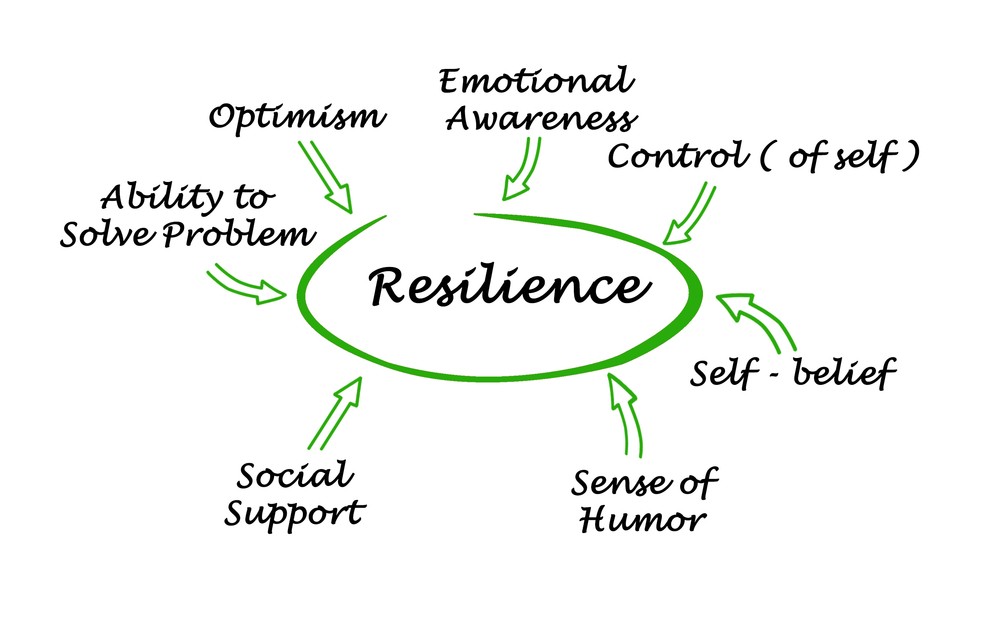 Building resilience involves strengthening one’s ability to bounce back from the challenges of OCD and narcissistic traits. Here are ways to cultivate resilience:
Building resilience involves strengthening one’s ability to bounce back from the challenges of OCD and narcissistic traits. Here are ways to cultivate resilience:
- Positive Relationships: Encouraging solid and supportive relationships offers a buffer against stress.
- Professional Therapy: Counselors or therapists specializing in OCD and narcissism can provide techniques for managing symptoms.
Seeking support is equally important and can include:
- Support Groups: These provide a platform for sharing experiences and feeling understood.
- Family Therapy: Involving family members can educate them and improve the home support system.
A proactive approach to building resilience can empower individuals to handle life’s challenges more effectively.
Key Takeaway: Balancing adaptive coping methods with consistent support leads to greater resilience for those dealing with OCD narcissistic characteristics.
Social Implications and Public Perspective
Understanding the social implications and public perspective on OCD and narcissism is vital because it affects individuals’ well-being and the relationships they build. This section discusses how society views these conditions, the common misconceptions, and the importance of increasing empathy through education.
Misperceptions and Stigmatization
Misconceptions around mental health conditions such as obsessive-compulsive disorder (OCD) and narcissism can lead to significant stigmatization. It’s commonly thought that:
- Narcissism solely involves self-absorption, missing the complexities of the condition.
- OCD is just about cleanliness or orderliness, disregarding the mental strain it can cause.
In reality, OCD is a severe anxiety disorder that can manifest in various ways beyond the stereotypical compulsions, and narcissism includes a spectrum of traits that can significantly impact one’s interpersonal relationships. Research shows that stigmatization can discourage individuals from seeking help or sharing their experiences with others.
Advancing Awareness and Empathy
Elevating public understanding and fostering empathy requires:
- Educational Initiatives: Programs and resources that inform about the nuances of mental health, particularly OCD and narcissism.
- Personal Stories: Sharing experiences from those affected builds a bridge to public empathy.
Initiatives should involve mental health professionals to ensure accurate information dissemination. On the relationship front, increased awareness can lead to healthier interactions with people with these conditions. For instance, knowing the signs of OCD can help friends and family provide support instead of judgment.
In conclusion, efforts that improve public opinion and cultivate empathy are crucial for individuals with OCD and narcissistic traits. A well-informed public can create a more supportive and understanding society.
The Broader Spectrum of Personality Disorders
Personality disorders encompass a range of mental health conditions characterized by enduring patterns of behavior, cognition, and inner experience that deviate markedly from the expectations of an individual’s culture. Within this broader spectrum, specific disorders can share overlapping features, including patterns of excessive self-focus or rigid behavior.
Similarities Among Various Personality Disorders
Personality disorders share several core features despite their characteristics:
- Chronic Nature: They typically manifest by adulthood and are persistent over time.
- Impact on Functioning: They often lead to distress or impairment in personal, social, or work settings.
- Variability in Expression: Symptoms can range from mild to severe and fluctuate in presence and intensity.
Moreover, research suggests that many personality disorders co-occur, which means an individual may experience symptoms of more than one disorder simultaneously.
NPD and OCD in the Context of Other Disorders
 Narcissistic Personality Disorder (NPD) and Obsessive-Compulsive Disorder (OCD) can be considered within the larger context of personality disorders through different lenses:
Narcissistic Personality Disorder (NPD) and Obsessive-Compulsive Disorder (OCD) can be considered within the larger context of personality disorders through different lenses:
- Comparison with Other Conditions:
- NPD is marked by grandiosity, a need for admiration, and a lack of empathy.
- OCD is characterized by the presence of obsessions and compulsions that are time-consuming and cause significant distress or impairment.
- Intersection with Other Disorders:
- Overlap with Anxiety Disorders: Like OCD, other disorders, especially within the anxiety disorder category, involve a significant amount of distress and worry.
- Differential Diagnosis: NPD may be differentiated from other personality disorders due to its unique emphasis on self-importance and entitlement.
Key Takeaway: Grasping the nuances and intersections of various personality disorders, including NPD and OCD, contributes to a comprehensive understanding of mental health conditions and informs better approaches to diagnosis and treatment.
Frequently Asked Questions
Understanding the intricacies of OCD and narcissism can be challenging. The questions below aim to shed light on their possible connections and the nuances of their co-occurrence.
How can OCD lead to concerns about being narcissistic?
In some individuals, OCD’s intense self-focus on rituals and intrusive thoughts might be mistaken for narcissism. They may worry excessively about being perceived as self-centered, even though their behavior stems from anxiety rather than egotism. It’s important to remember that the self-absorption in OCD is driven by fear, not by a need for admiration.
Key takeaway: The preoccupation with one’s thoughts in OCD is often mistaken for narcissism, but it’s rooted in anxiety.
What are the common symptoms that overlap between OCD and narcissism?
There are a few symptoms that intersect between OCD and narcissism, such as a penchant for perfectionism and a need for control. Someone with OCD might insist on strict routines, while a narcissist may demand control to maintain a sense of superiority.
Key takeaway: Perfectionism and a high need for control are common denominators in both OCD and narcissism.
Can narcissistic abuse have an effect on someone with OCD?
Absolutely. Narcissistic abuse, characterized by emotional manipulation, can exacerbate OCD symptoms by increasing stress and anxiety levels. It can also trigger obsessive thoughts in someone already prone to these patterns.
Key takeaway: Emotional manipulation from narcissistic abuse can intensify the symptoms of OCD.
Is there a known correlation between OCD and a lack of empathy?
While OCD does not inherently involve a lack of empathy, the disorder’s consuming nature can sometimes inadvertently lead to a focus away from others’ needs. This isn’t due to a lack of concern but rather the result of being overwhelmed by their compulsions and anxieties.
Key takeaway: Despite potential preoccupation with personal anxiety, lack of empathy is not a characteristic feature of OCD.
In what ways can the behavior of someone with OCD appear manipulative?
Behavior in someone with OCD might come off as manipulative when the individual seeks reassurance or demands specific actions from others to alleviate their distress. This isn’t intended to control or exploit but is a way of trying to manage their overwhelming anxiety.
Key takeaway: Though not intended to manipulate, the need for reassurance in OCD can sometimes be misconstrued as such.
What is the relationship between compulsive behaviors and narcissistic traits?
Compulsive behaviors in OCD and narcissistic traits like entitlement may appear similar on the surface, as both can involve insisting on particular outcomes. However, compulsions are driven by anxiety management, whereas narcissistic behaviors aim to serve the individual’s self-image.
Key takeaway: While compulsive and narcissistic behaviors may look alike, their underlying motivations differ significantly.
 Jacob Maslow: Navigating Life’s Challenges with Hope and Resilience
Jacob Maslow: Navigating Life’s Challenges with Hope and Resilience
My Journey Through Life’s Ups and Downs:
- Finding Balance: I use Lexapro to manage my mental health and have embraced therapy for years. Recently, I’ve joined BetterHelp to continue this support.
- Dealing with Difficult Relationships: My ex, showing clear signs of narcissism, made our family life challenging, especially when she stopped cooperating with our kids’ reunification therapy.
Facing Parental Challenges:
- Struggle for Connection: It’s been tough dealing with my ex’s refusal to allow communication with our kids and her disregard for custody agreements and court orders.
- Legal Hurdles: I’m constantly navigating legal battles due to her non-compliance, striving to maintain a relationship with my children.
My Coping Strategies:
- Clearing My Mind: Daily long walks are my therapy, helping me think and stay grounded.
- Writing as a Lifeline: Sharing my stories about mental health and dealing with narcissistic relationships is not just a passion; it’s a way to connect and heal.
Reaching Out to Others:
- Helping Hands: Through my legal and relationship websites, I offer advice and support to those facing similar struggles with custody and complex family dynamics.
My Core Belief:
- Optimism in Adversity: Despite the rollercoaster of emotions and setbacks, I believe in the strength each of us has to overcome our mental health challenges.
It’s been a tough eleven months, losing my close connection with my kids. But I’ve learned that sharing these experiences, as tough as they are, can bring comfort and guidance to others facing similar paths. We’re all together; there’s always hope for a brighter tomorrow.

- The Burnout Epidemic: Why We’re All Feeling Overwhelmed and How to Cope - February 9, 2024
- How to Live a Peaceful Life - February 9, 2024
- Useful Information You Should Know About Health Screenings - February 8, 2024
This site contains affiliate links to products. We will receive a commission for purchases made through these links.


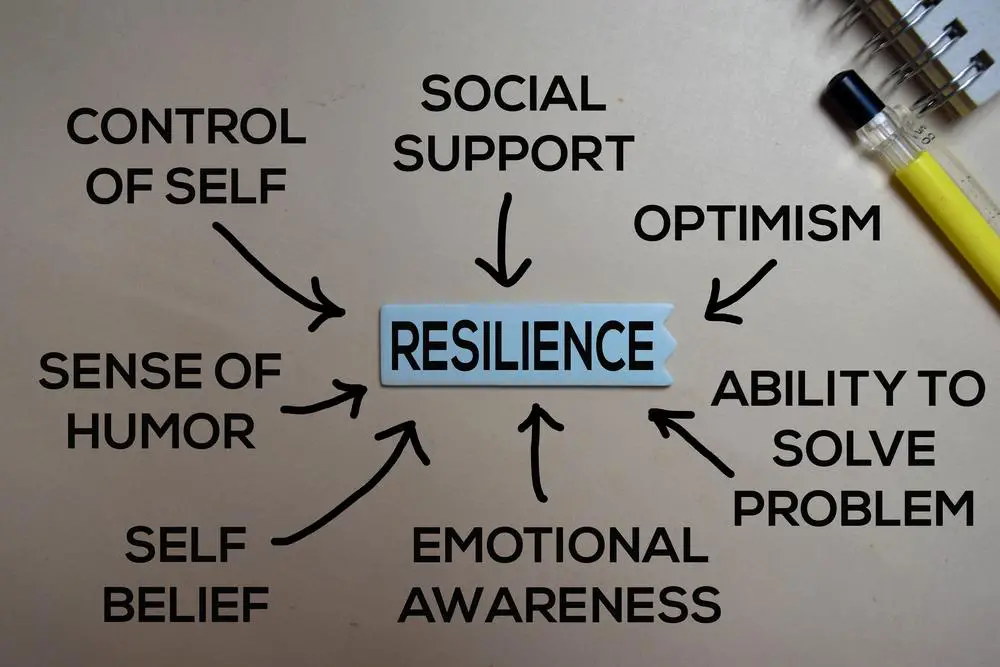 Jacob Maslow: Navigating Life’s Challenges with Hope and Resilience
Jacob Maslow: Navigating Life’s Challenges with Hope and Resilience

